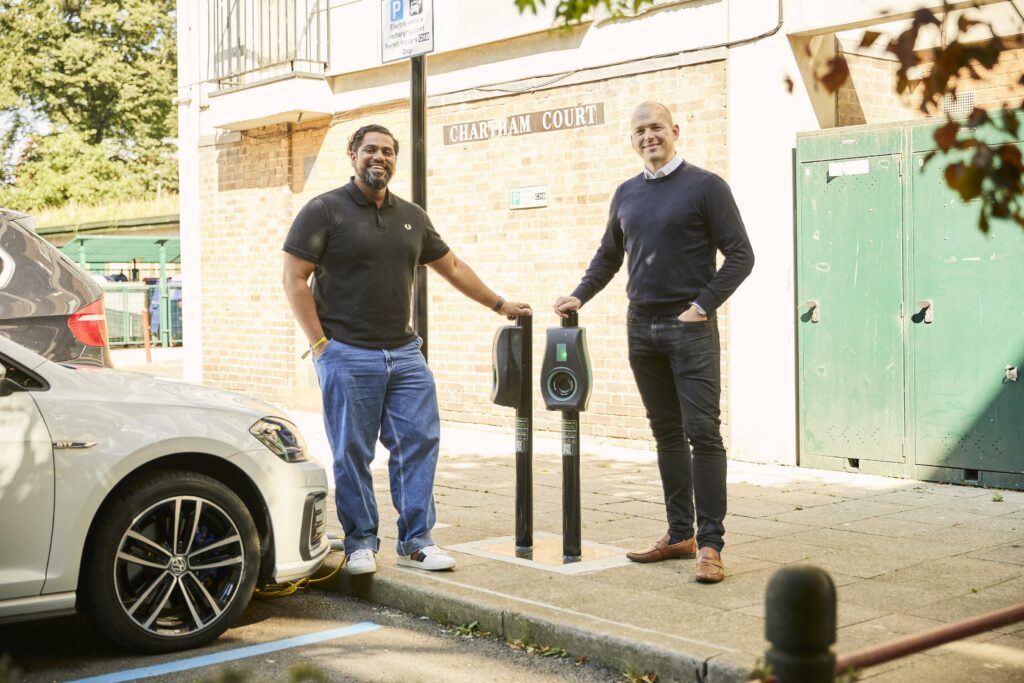Connected Kerb is working with the London Borough of Lambeth to demonstrate how affordable and accessible public EV charging infrastructure can be deployed to tackle electric vehicle (EV) inequality.
The project – lauded as the first-of-its-kind – is to act as a blueprint that can be adopted at scale by other boroughs, councils and cities across Britain to deliver an inclusive and equitable EV transition.
It is to deliver 22 on-street EV chargers across 11 council estates in the borough to provide easy access to public charging even for those without off-street parking. Each of Connected Kerb’s chargers will provide a 7kW fast charge, with each chargepoint featuring contactless payment via the Connected Kerb app.
The project is designed to drive EV adoption in communities that Connected Kerb said are traditionally underserved, giving the example of those living in urban centres, high-rise flats and council estates. People living in these sorts of areas are significantly less likely to have access to a private driveway, making it difficult to install home charging solutions.
As such, households with access to a driveway make up 80% of EV owners, with the remaining 20% owned by those in houses or flats with no access to off-street parking, according to research from the government office for science.
Around a third of the residents in Lambeth live on estates managed by the council, and the majority of the housing in the borough doesn’t have off-street parking, meaning a large proportion will need to rely on public EV charging infrastructure.
Funding from the On-Street Residential Charge Point Scheme has covered 75% of the costs of the project with Connected Kerb to help improve this infrastructure, with the remaining costs covered by the council.
Chris Pateman-Jones, CEO of Connected Kerb, said that with the low running costs of EVs, all communities regardless of where they live can benefit.
“Unfortunately, some communities are being failed by a classic chicken and egg scenario. Without high EV adoption, charge point operators won’t build public charging, and without reliable charging, why would anyone go electric?
“We have designed our business model to overcome this and with Lambeth Council, we are delivering a fairer and equitable clean transport future – here and right across the UK,” he said.
This is a topic Current± explored in depth earlier this year, examining how on-street charging can bridge the gap between early adopters and lower income households, which are more likely to not have access to off-street parking.
Connected Kerb’s project comes during a time when the EV industry is placing greater focus on equality and accessibility. This week alone, Motability and Designability have highlighted the barriers faced by disabled drivers, while SSEN has partnered the Energy Systems Catapult to examine the different solutions available to address and overcome the barriers to the uptake of EVs by drivers with disabilities and vulnerabilities.





